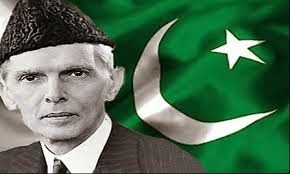This blog piece is coming close on the heels of Prime Minister Narendra Modi’s rather historical assertion about the patriotism of Indian Muslims. But about a week back, precisely on September 14, 2014, exactly four days before Modi’s interview to Fareed Zakaria I had posted the following para on the Facebook:
“There's a general trend in arguing these days that ISIS is making impact in India and wooing Muslim youths, but my firm contention is that it could be still far-fetched to say that Al-Qaeda’s message of jihad is reaching Indian Muslims now.”
There can be no dispute about the correctness of the statement; and only issue being the timing. Modi's 'Muslims are patriotic' lot remarks come two-day after UP by-elections debacle wherein Love Jihad campaign failed and about a week before his US trip.
So probably the piece would have come
even without Modi’s statement wherein he waxes eloquently: “If anyone thinks Indian
Muslims will dance to their tune, they are delusional. Indian Muslims will
live for India , they will
die for India --they will not
want anything bad for India South Asia .
Indian Muslims are not actually new to
the influence of radicals or terrorist campaign but the ‘Bharatiyata’
(commitment to Indian nationhood) has prevailed among the minorities in this
country notwithstanding an effort being made by so called secular elements to
keep them isolated from the mainstream. There is little to dispute that such
divisions have been exploited by the champions of Hindutva, the RSS and even
Narendra Modi himself also. The majority of Hindus who clamoured just a few
months back for getting Narendra Modi as their Prime Minister are actually
enamored more by Modi’s developmental plank than his Hindutva image. They, however, looked upon Modi as the only chief minister in independent India who stood by Hindus. Why such a perception has come to stay remains to be debated.
 |
| Fareed Zakaria |
And if communalism was also a
factor to attain reverse polarization it was perhaps more by the anguish
towards secular bogey’s attempts to taunt Hindus, especially the middle class and upper castes. The most unprecedented
comments on these lines came from Dr Manmohan Singh, who as Indian Prime
Minister, indeed insulted the majority community when he said the first right
to natural resources is for minorities.
The over estimated economist and
country’s most under estimated politician in recent times was actually leading
a large number of moderate Hindus towards a sure and certain communal trap.
I have interacted with intelligence
officials and security experts – both serving and retired – and quite a few of
them discard the theory that ISIS or Al Qaeda influence can wean away considerable
number of Muslims in India even as there have been reports of some youths getting excited about the idea of Jihad. The general refrain and I am also convinced about it is that
the young Muslims in India
The
history of Muslims in India
can be easily described as an uninterrupted tale of woes barring the glorious
past when they ruled supreme from Kashmir in
the north and beyond to down south. The tragedy for Muslims in this country is
that despite being loyalists, they have been termed pro-Pakistanis as some
ill-advised youths support Pakistan Pakistan in search of their ‘holy land’ from India
The
Muslim contribution to India
In
fact, even for someone like Muhammad Ali Jinnah, the founder of Pakistan, it
would not be out of place to say that focusing on Jinnah’s later career and
examining it in isolation from his early years will be unjustified. When Jinnah
returned to India
While some say Jinnah was ambitious, others say Jinnah’s concern for Muslims
and in the process Muslims endorsing his two-nation theory largely revolved
around social issues.
Muslims
in general from 1857 to at least 1920s remained ‘nationalistic’ and to a degree
idealistic.
The
problems probably started after that. Things only worsened when after independence and
especially under Indira Gandhi, the Congress party played the dirty
‘appeasement card’.
So much for the cause of false championing of Muslim cause
that even in Kerala or Bengal , Muslims were forced
to support the cause of Urdu language.
On the
other hand, the post-1992 or post-2002 politics in India
to
encash the ‘appeasement’ card for their selfish benefits. In the process, we
saw a Left-ruled West Bengal ’s Muslim
conditions far below the national average, courtesy Sacchar Committee report appointed by UPA-1 supported by the Leftists themselves.
One ought to be reminded at the
end that like that proverbial parrot and demon story, the life of Hindu
communalism lives in the parrot called FALSE APPEASEMENT of Muslims! This
imbalance needs to be corrected.


.JPG)




No comments:
Post a Comment